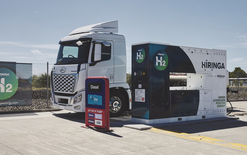Finance companies fast-track digital services

Members of the Financial Services Federation have heard of how lenders in similar economies are trying to get back on track following the impact of Covid-19.
The organisation recently held its “Recovery Conference” in Auckland, with members discussing key matters facing the industry.
Part of the day saw experts from Australia and the UK share via screen their insights as to how lenders are coping with the effects of the pandemic on business, and in particular its impact on the motoring sector.
Diane Tate, pictured left, chief executive officer of the Australian Finance Industry Association, says many economies around the world remain far from recovery.
She told the event the acceleration of digitisation is one of the most notable outcomes of the health crisis and “there’s probably no going back”.
“How people are engaging with finance companies has been significantly shifted,” she notes.
“Future changes will not just be from a competition perspective but how are our markets operating.”
Richard Bostock, pictured right, senior adviser at the UK’s Finance and Leasing Association (FLA), revealed there had been substantial drops in motor vehicle financing this year.
His address to the conference on November 26 highlighted how new business for car finance in the UK fell 27 per cent by value and 29 per cent by volume in the eight months to August 2020, compared with the same period in 2019.
He says industry figures reveal the number of new car registrations in the UK also fell by 33.2 per cent during that time.
The UK government has introduced payment deferrals of up to six months in an effort to help people get through the pandemic, but Bostock adds this is creating challenges for lenders.
Future developments for the FLA’s motor and asset members surround the UK’s transition to zero carbon, with the government planning to end sales of new diesel and petrol vehicles by 2030, and hybrid cars by 2035.
“The problem UK lenders have is being able to fund electric vehicles due to our key piece of legislation the CCA [Consumer Credit Act] being outdated and wedded to where there's one asset, one creditor, one debtor in the lending arrangement,” explains Bostock.
“Electric vehicles (EVs) have two assets, with the battery itself holding considerable value and depreciating at a different rate to the rest of the car.
“The CCA provides very little flexibility on how EVs can be financed. The other major issue is affordability of electric vehicles due to their price tag.
“We are starting to work with the government and other organisations to come up with a proposition that may help to reduce the monthly cost of financing an EV through some form of de-risking that may involve some government guarantee or at least some government intervention.”





